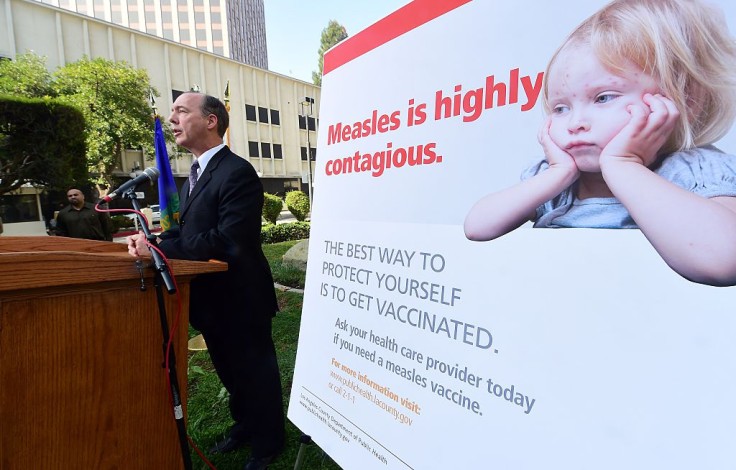
Measles outbreak in central Ohio is officially over.
The Columbus Public Health (CPH) announced Thursday that the measles outbreak that happened in central Ohio, which began last November, is now past them.
The outbreak, which affected 85 children, has surpassed the 42-day incubation period, which fits Central for Disease Control and Prevention's standard for an end of an outbreak. CPH just recently received the last pending result and all suspected measles cases were negative, as declared by the agency via Twitter.
An overwhelming majority, or 65%, of cases occurred among children between ages 1 and 5 with children under age 1 being the next most affected group.
Sixty five percent of the affected kids were between ages one to five while the next most affected group were those under the age of one. None of the children died, yet there were 36 who were taken to the hospital. According to CPH's communications director Kelli Newman, most of those who were hospitalized were due to dehydration and some needed intensive care.
It is important to note, however, that out of the 85 infected children, 94 percent were unvaccinated.
Four of them received only one dose of measles, mumps, rubella (MMR) vaccine while one kid had an unknown status of vaccination.
Vaccination is crucial
A CDC report published earlier in January stated that for the school year 2021 to 2022, only 88.3 percent of Ohio's kindergartens received two doses of MMR, which is way less than the national average of 93 percent.
"I think this is kind of a wake up call for all of us. While this outbreak is behind us, and we're grateful for that, we know that the next outbreak could just be one missed vaccine away," Newman emphasized.
Parents are being reminded that vaccination is crucial. A dose of the vaccine gives 93 percent effective prevention from the infection if children are exposed to the virus. Two doses offer 97 percent effective protection.
Infants between 12 to 15 months are recommended to receive their first dose while the second dose should be administered during the preschool stage between ages four to six.
CPH further declared that there have been no measles cases recorded since December 24 of last year.
COVID-19 pandemic effect
Measles is one of those diseases that are very contagious. The virus has the ability to spread from one infected individual to up t0 10 close contacts who are unprotected - those who are unvaccinated to not wearing masks, CDC stated.
Its complications can be relatively harmless like rashes but can also be severe like pneumonia, viral sepsis or brain swelling.
The United States has fully eradicated measles in 2000 due to the "highly effective" campaign on vaccination, until a joint report from the World Health Organization and CDC announced an "imminent threat" of measles outbreak around the world last November.
The threat was caused by the data found stating that a record-high of nearly 25 million kids have missed the first dose of the measles vaccine and 14.7 million missed their second dose in 2021, all due to COVID-19 pandemic, ABC News reported.
In May last year, another study was released revealing that 33 percent of American parents reported that their children missed measles vaccination due to the regulations imposed during the pandemic, hindering the progress of the campaign against measles.
Related Article: Childhood Vaccination Rates Plummet Amid Measles, Polio Outbreaks Due to COVID Misinformation